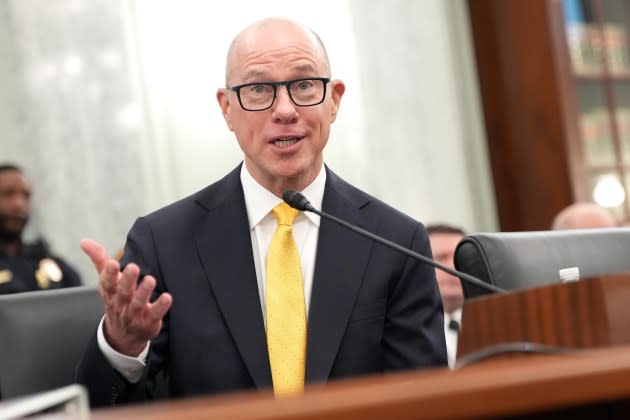Recent scrutiny surrounding a former Trump FAA nominee has raised serious questions about the veracity of claims regarding his aviation credentials. The alleged misrepresentation of a commercial pilot license has sparked controversy and drawn attention to the vetting processes for high-level government appointments. This incident underscores the critical importance of accuracy and transparency in the qualifications of individuals nominated to positions of public trust, particularly within regulatory agencies like the Federal Aviation Administration.
Concerns Over Pilot License Claims
The central issue revolves around discrepancies in the nominee’s publicly stated qualifications versus records obtained through Freedom of Information Act requests. While the nominee claimed to possess a commercial pilot license, official documentation reportedly does not support this assertion. This raises concerns about potential misrepresentation and the implications for his ability to effectively lead an agency responsible for aviation safety. According to aviation law expert, Amelia Stone, “The FAA requires its leaders to have a deep understanding of the aviation industry, and misrepresenting credentials undermines public trust.”
The FAA’s Role and Importance
The Federal Aviation Administration (FAA) plays a crucial role in ensuring the safety and efficiency of air travel within the United States. Its responsibilities include regulating air traffic, certifying pilots and aircraft, and developing and enforcing safety standards. A leader lacking genuine aviation expertise could potentially compromise the agency’s effectiveness and, ultimately, public safety. As stated in the FAA’s 2023 Strategic Plan, “Maintaining the highest levels of safety requires experienced and knowledgeable leadership at all levels of the organization.”
Vetting Process Under Scrutiny
The controversy has also ignited debate about the thoroughness of the vetting process for presidential nominees. Critics argue that a more rigorous examination of candidates’ backgrounds and qualifications is necessary to prevent similar incidents in the future. “The current vetting process relies heavily on self-reporting,” explained Dr. Kenji Tanaka, a professor of political science at Georgetown University. “There needs to be independent verification of key credentials, especially in fields like aviation where public safety is paramount.” A recent report by the Government Accountability Office (GAO) highlighted inconsistencies in background check procedures across various federal agencies.
Potential Consequences and Next Steps
The potential consequences of this situation are multifaceted. If the allegations are substantiated, the nominee could face legal repercussions, including perjury charges. Furthermore, the incident could damage the reputation of the administration and erode public confidence in the appointment process. Moving forward, it is imperative that the relevant authorities conduct a thorough investigation and implement measures to strengthen the vetting process for future nominees. According to a spokesperson for the Senate Aviation Committee, “We are taking these allegations very seriously and will conduct a full review of the nominee’s qualifications.”
This incident serves as a stark reminder of the importance of transparency, accuracy, and rigorous vetting in the appointment of individuals to positions of public trust. The FAA’s critical role in ensuring aviation safety demands leaders with unquestionable expertise and integrity. Moving forward, a commitment to thorough vetting and independent verification of credentials is essential to maintain public confidence and safeguard the skies.


